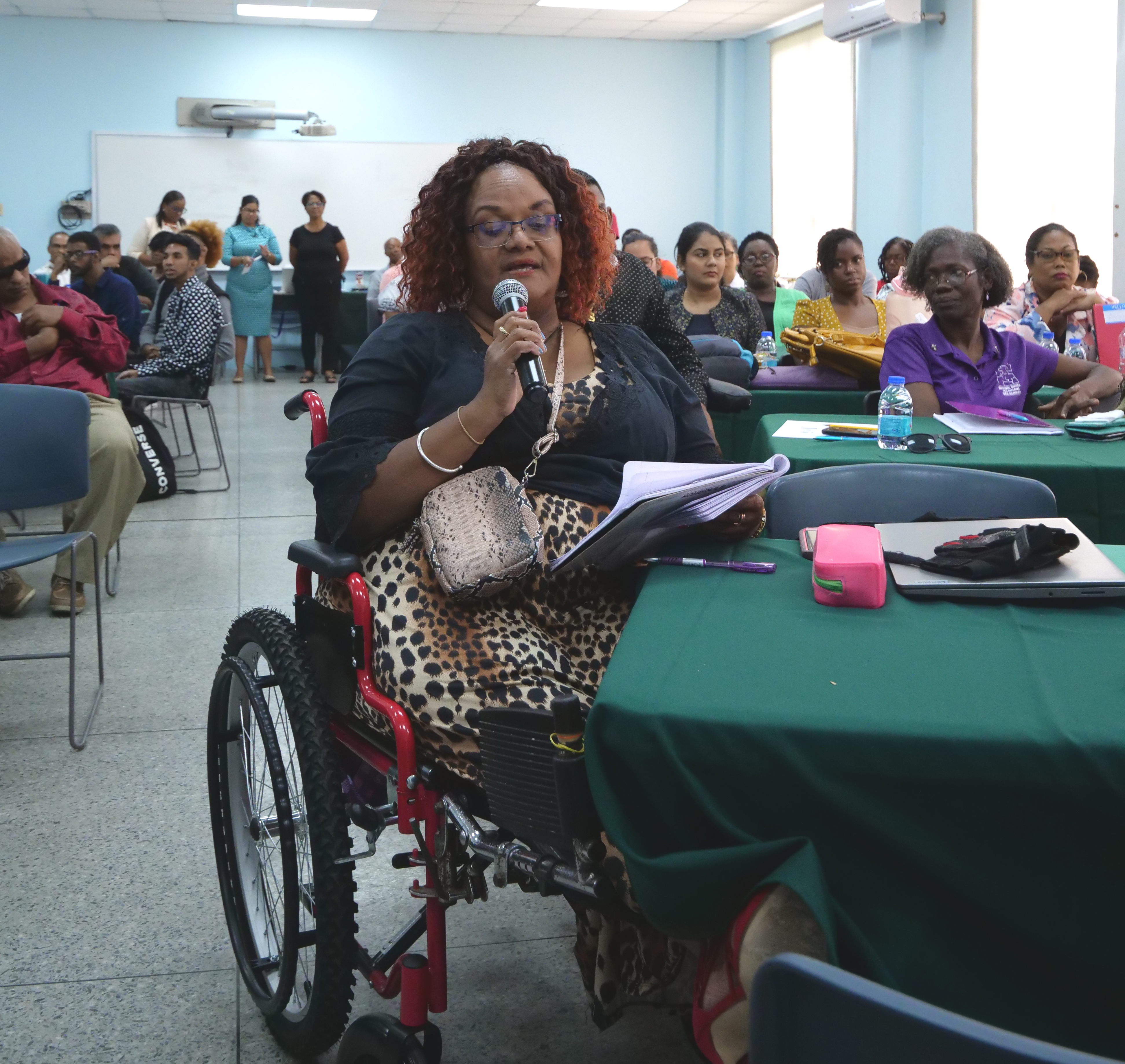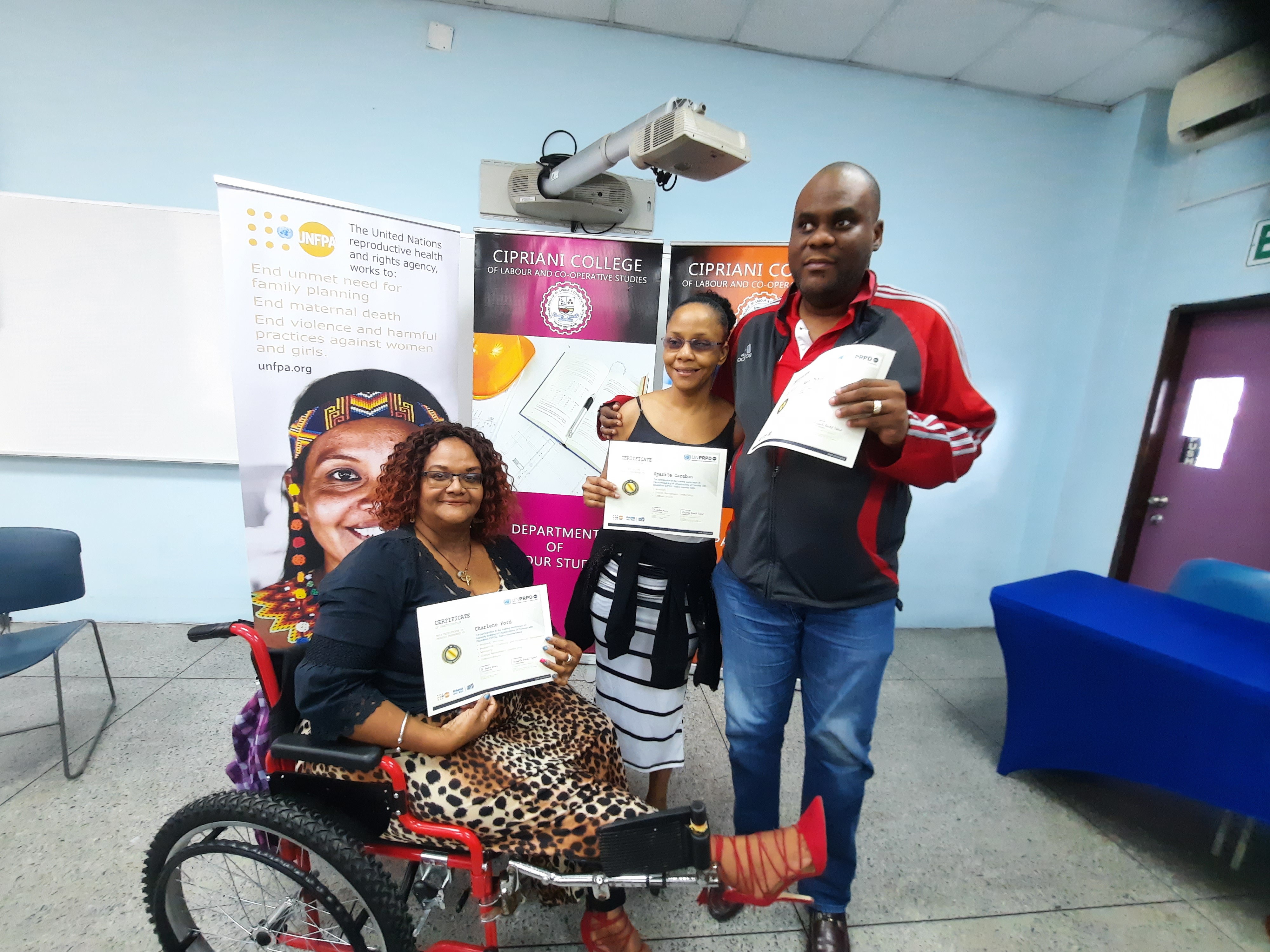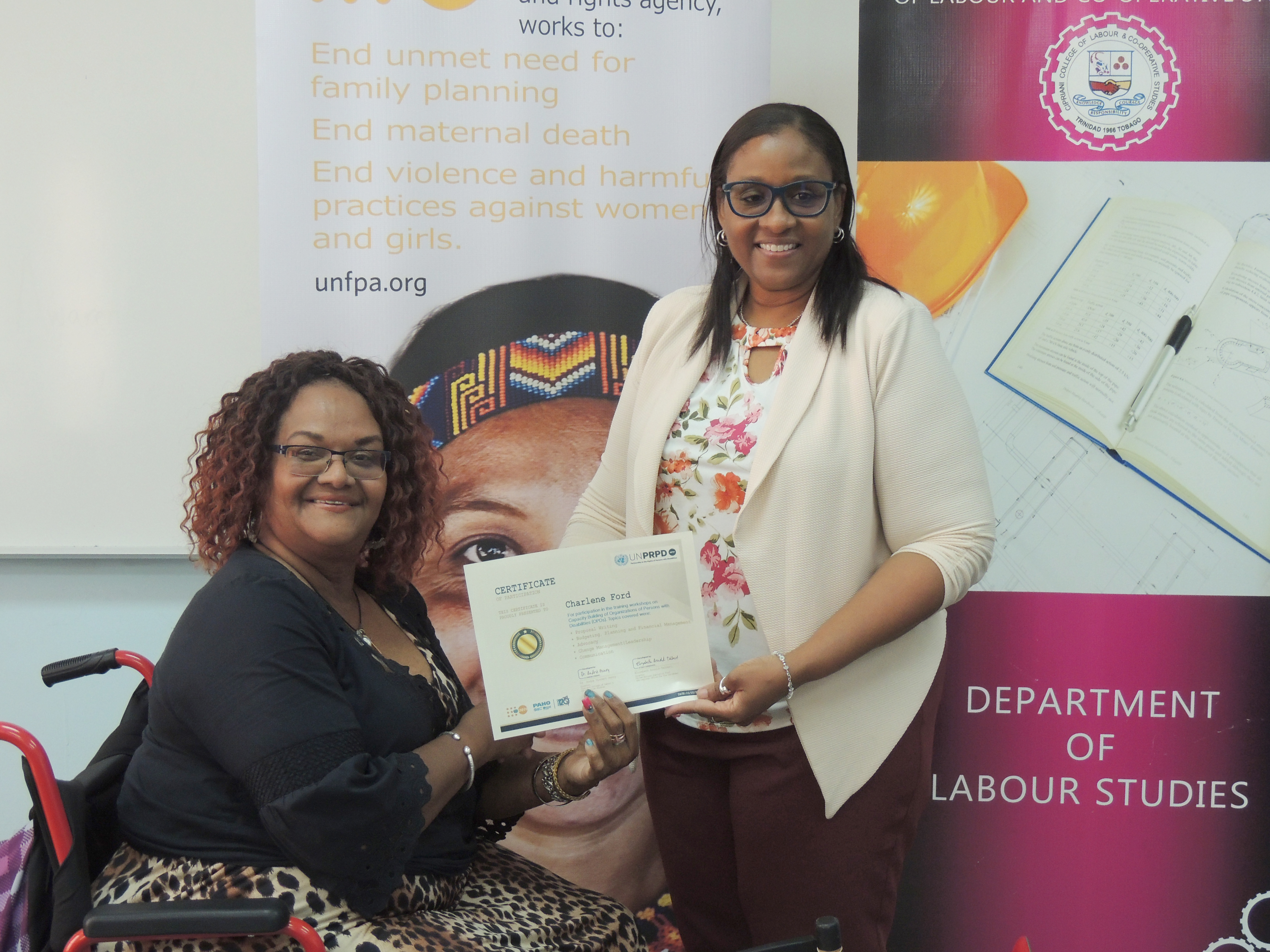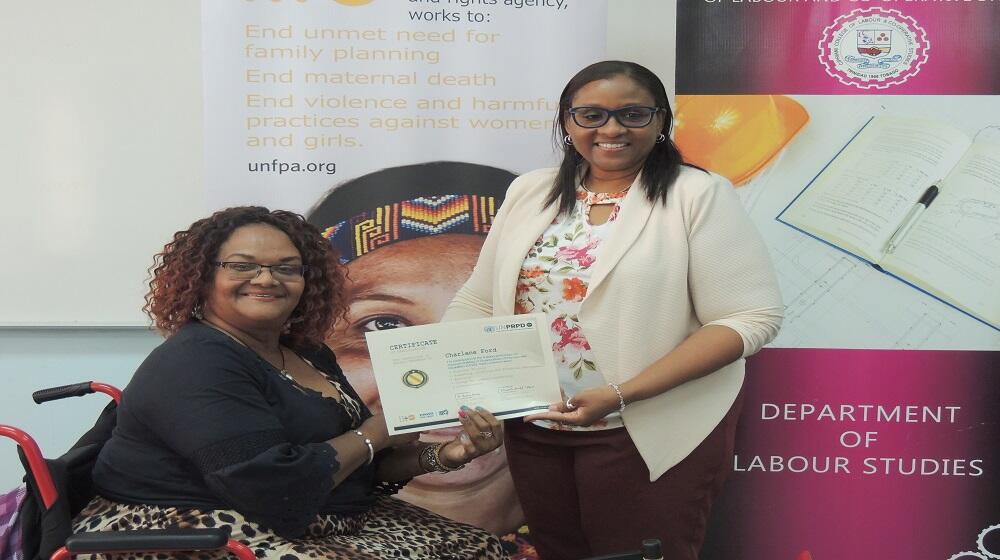In 1990, when Charlene was just twenty years old, tragedy struck mere minutes away from her home. She was severely injured when the car she was traveling in burst into flames after a head-on collision. “Earthly angels” - as Charlene now calls them - braved the fire to pull her and the driver out to safety. Her body covered in third degree burns, lacerations and fractures, she was considered on the brink of death when she arrived at the local hospital. “It was a traumatic and extremely life altering experience and I had to learn to do things differently,” Charlene recalls.

As she was being rushed to the operating theatre, Charlene slipped into a coma. Miraculously, or perhaps as a testament of her faith, she woke up six days later just before she was about to be taken off life-support. In the ten months Charlene spent in hospital, her health severely deteriorated. Her parents and neighbours raised funds to take her to Venezuela for orthopaedic surgery to help recover the use of her legs. She spent eight months undergoing operations and rehabilitative treatment. In December 1991, after 18 months of hospitalization both at home and abroad, Charlene returned to Trinidad using a wheelchair. It would take another surgery in Venezuela two years later to restore her mobility. On this long road to recovery, she eventually graduated to crutches and, when needed, a tripod walking stick. “I was able to walk out the street to get transportation and move around on my own,” Charlene says.
But another cruel twist of fate in 2006 put Charlene at the center of a second vehicular accident, this time in a bus for persons with disabilities. The force of the impact threw her from the back of the bus to the front, breaking her left femur for a second time. This new injury returned her to a wheelchair once again. “This set me back to ground zero,” Charlene says. “To this day, I have not regained my independence. I became totally dependent, most times, on independent people. I felt ostracized, discriminated against by society at large and crippled by my surroundings and infrastructure, including the home I grew up in!” Charlene is unable to participate in certain activities, organisations and events because disability-friendly services and facilities, including restrooms, are often unavailable. “Not even the medical facilities have proper access in examination rooms and entering buildings,” Charlene laments. “This includes limited access to dental and eye care, hospital and health centres.” Having a fused leg makes it challenging to acquire the right type of wheelchair to aid her mobility. She has not been able to get a wheelchair that both holds her right leg in place and withstands the wear and tear of the outdoors. She also has challenges with some elevators due to the size.
Like Charlene, Persons With Disabilities (PWDs) in Trinidad and Tobago face inequality, a general lack of access to services and poor socio-economic outcomes. This is largely due to weak legislation and enforcement, lack of public awareness of the capabilities of PWDs, limited sensitization of PWDs on their rights, limited knowledge and competencies among organisations providing key services to this population, and limited access to rehabilitation services, health services, education and employment at the community level. United Nations Population Fund (UNFPA) and Pan American Health Organisation (PAHO), through the Partnership on the rights of Persons with Disabilities Project (UNPRPD), are providing technical support and facilitating multi-stakeholder partnerships with PWDs and Organisations for People with Disabilities (OPDS) to address these challenges.

Even as she struggled to recuperate from her life-altering tragedy, Charlene felt a calling to support other people with disabilities. Her new way of life awakened in her a great desire to empower people like her who face challenges because of their disability. Charlene, now president and founder of the Trinidad and Tobago Association for Differently Abled Persons (TNTADAP), has participated in the UNPRD project’s capacity-building workshops. “Knowledge is power,” Charlene says emphatically. “It is scandalously deplorable that there are so many flaws in the laws that pertain specifically to the way in which the words ‘person with a disability’ or ‘differently-abled persons’ are referred to in legal documents. These sessions were not only eye-opening, but they helped empower the participants to better understand the way forward.” The UNPRPD project also focuses on strengthening and improving disability data collection; reviewing laws and policies; increasing public awareness and understanding of disability; investing in specific programmes and services for PWDs; improving the governance and coordination of OPDs, and strengthening disability inclusion within the UN. The Cipriani College of Labour and Co-operative Studies provided the capacity building workshops on Proposal Writing; Budgeting, Planning and Financial Management; Advocacy; Change Management and Leadership and Oral and Written Communication.
The workshops are already bringing greater awareness of the need for NGOs to collaborate to advocate for the appropriate laws to be in place for PWDs. “It is my desire that this collaboration begins NOW,” Charlene says “I want to encourage groups to execute a strong advocacy plan and to lobby for legislation to be put in place specifically for persons with disabilities. With new medical advancements now available, Charlene hopes to find a physician with the expertise to analyse her case and help her regain her mobility.
“As the singer Michael Bolton says, ‘I’ll be back on my feet again, I’ll walk proud down the street again, and they’ll all look at me and then, they’ll see that I am strong.’”



